Description
For your consideration is an exceedingly rare and historically significant original antique c.1955 typeset letter from Germany, authored by Chancellor Franz von Papen and addressed to Mr. Henry F. Taylor of New York, NY. This document, reflecting on the post-World War II geopolitical landscape, discusses various pivotal issues such as Russian Soviet propaganda, Adolf Hitler, the challenges of a united Europe, and the complexities of re-establishing diplomatic relations with Eastern countries.
The letter, written on January 4, 1955, measures approximately 8.25" x 11.5" and consists of two pages on a single leaf. It comes with the original mailing envelope, hand-addressed to Mr. Taylor by Chancellor Papen, measuring approximately 6.0" x 4.5". The content captures a vivid snapshot of the era's hopes and the perceived prosperity on the horizon, amidst the political turmoil and diplomatic challenges of the mid-20th century.
Original Transcript of the Letter:
"Obersasbach Uber Achern / Baden (About Achern / Baden).
January 4, 1955.
Dear Mr. Taylor,
It was a rare and very special pleasure to have received this long and most interesting letter from a man as highly occupied as you are. Please accept our sincerest thanks—from my wife and daughters as well—we all are so anxious to learn how the present situation will be looked at in your great country. Reading 'Time' or any daily paper can never give an exact idea, such as you have given me in a few short phrases.
The general public mind in my country seems just the same as over there; a spirit of optimism about the confused world's situation. But you cannot define it as well. Life is going on, production advances, and everybody hopes to have a share in the common prosperity. Very few people seem to realize that so far, the Russians are winners in their coexistence and peace propaganda; that all we can state is that they need a breathing spell—and that they will have it.
Our public opinion during these last weeks has been harassed, of course, by the French spectacle. All hopes about the forming of a United Federal Europe have vanished—for we have seen that France prefers to organize her national self-consciousness (What in itself is certainly excellent, wouldn't it serve the self-delusion of rearmed Germany's incredible dangers).
You are quite right to say that my country in Europe and Japan in the Orient are now the most critical places in the world. So it will be intelligible that the people over here worry very much about the question of our reunification. With the latest French experiences, we know it from M. Mendès-France himself that he wouldn't lend his little finger for any step in that direction. Moreover, as have been left under the impression that at Paris, we have been put under a coercive proceeding about the Saar question. As it stands now, it is bewildering to see that our Chancellor and M.M.-Fr. are giving quite a different interpretation of this very superficial Saar-statute. It should not be forgotten that we have fought 15 years (1920-35) to preserve this German province—and that the present Statute doesn't even reserve the Saarlanders' right for a final vote (in the case of a peace treaty) whether they prefer to remain a part of Germany or not. As you know, we have been most willing to concede everything the French may want in the economic field—for instance, a 99-year lease of all coal mines and steel mills. The fact that all this couldn't satisfy the French proves beyond doubt that the real reason for a complete separation of this province is the need to reduce our surface still more—the separation of the Eastern provinces and of the Soviet zone seems an insufficient reduction.
But every schoolboy knows that a United Europe must be a farce without a very close French-German friendship. The deep deception of the effect of the French after-war policy are now on the bottom of the great ill-feeling amongst our younger generation. They do not know what they are fighting for with their 12 divisions when they see no chance of a bigger Europe and a final separation of our kin in the East. We know that many of your countrymen are simplifying the European situation from lack of knowledge, but everybody certainly hopes that the magnificent, outstanding help your great country gave to us and to this Continent must bear some fruits. Therefore, it should be understood that the whole question of our rearming will be senseless without a complete change of French thinking and policy. Sometimes they take advice from an old and strong friend and you should think it over.
You outlined in your letter the simplified view of the man in the street. I know public opinion goes that way. And this reminds me of Cpt. Grenfell's book "Unconditional Hatred". He knows the roots of our innermost situations; we suffer from the consequences of propaganda since 1914. When this man in the street says that he didn't fear the German people, but only the Kaiser and Hitler, then he should be enlightened that he is wrong with the first and that the second has been born at Versailles. You know, my dear friend, that this simplifying remark shall be in no way an excuse for ourselves. But I think it worthwhile, when broadcasting about our internal situation, to make a clean sweep with some of this old propaganda-stuff.
The French Premier's foremost desire seems a new conference with the Kremlin. I can only say that a conference without the reunification-question as the first point of the agenda can only do harm to the present uneasy situation over here. And I fail to see how we or you may put up without an offer in return. We have none to offer.
When the Paris treaties have finally reached their ratification, we should at once restore diplomatic relations with the East. That is the only step to be taken. This enormous struggle will go on for a long time to come. And I think the Holy Father gave us the wisest advice when he spoke of a co-existence, possible only on the unshakable ground of our Christian faith. We should be as strong as possible to defend our liberty and put the rest to the wisdom and graces of God.
Having this in mind, I know I meet your way of thinking and beg you to take all our sincerest wishes for a very happy new year—for your excellent work and for your great nation. God bless you all.
Yours, Franz von Papen.
Envelope: Mr. Henry F. Taylor, 230 Park Avenue New York 17 NY. Jan 4, 1955. From Franz von Papen after French ratification of German rearmament."
This compelling letter from Franz von Papen to Henry F. Taylor provides a rich historical commentary on the state of Europe in the mid-20th century, reflecting deep insights into the geopolitical tensions and challenges of the Cold War era. The content richly illustrates von Papen’s views on the political dynamics of the time, offering a vivid portrayal of his perspectives on German-French relations, the concept of a united Europe, and the strategic implications of Soviet and American influences on European soil. This document, with its original envelope, is a museum-quality piece that holds significant value for historians, collectors, or anyone interested in the intricate fabric of post-war European diplomacy.
In this insightful 1955 letter from Franz von Papen to Henry F. Taylor, von Papen delves into the complexities of post-WWII Europe, expressing cautious optimism about the future amidst a backdrop of ongoing Cold War tensions. He critically examines the efficacy of Soviet propaganda and comments on the prevailing sense of hope within Germany that prosperity is within reach. However, von Papen highlights significant challenges, notably the public's misunderstanding of the geopolitical landscape and the nuances of French-German relations. He expresses disillusionment with the French stance on German rearmament and its implications for the broader goal of a united Europe, lamenting the failure of initiatives aimed at fostering unity and cooperation.
Von Papen's reflections on the German public's sentiment towards the French, as well as the strategic missteps he perceives in French foreign policy, underscore a deep-seated frustration with France's approach to its relationship with Germany. He criticizes the French government's handling of the Saar region issue as shortsighted and detrimental to the goals of European integration. The letter also touches on broader geopolitical strategies, suggesting that the restoration of diplomatic relations with Eastern countries should be a priority once the Paris treaties are ratified, advocating for a pragmatic approach to diplomacy that aligns with Christian values.
Throughout the letter, von Papen articulates a nuanced understanding of the challenges facing Europe, calling for a reassessment of French policy and a more informed public discourse to navigate the complex international environment of the mid-20th century. His candid observations and the depth of his analysis offer a fascinating glimpse into the thoughts of a seasoned diplomat during a critical period in European history.

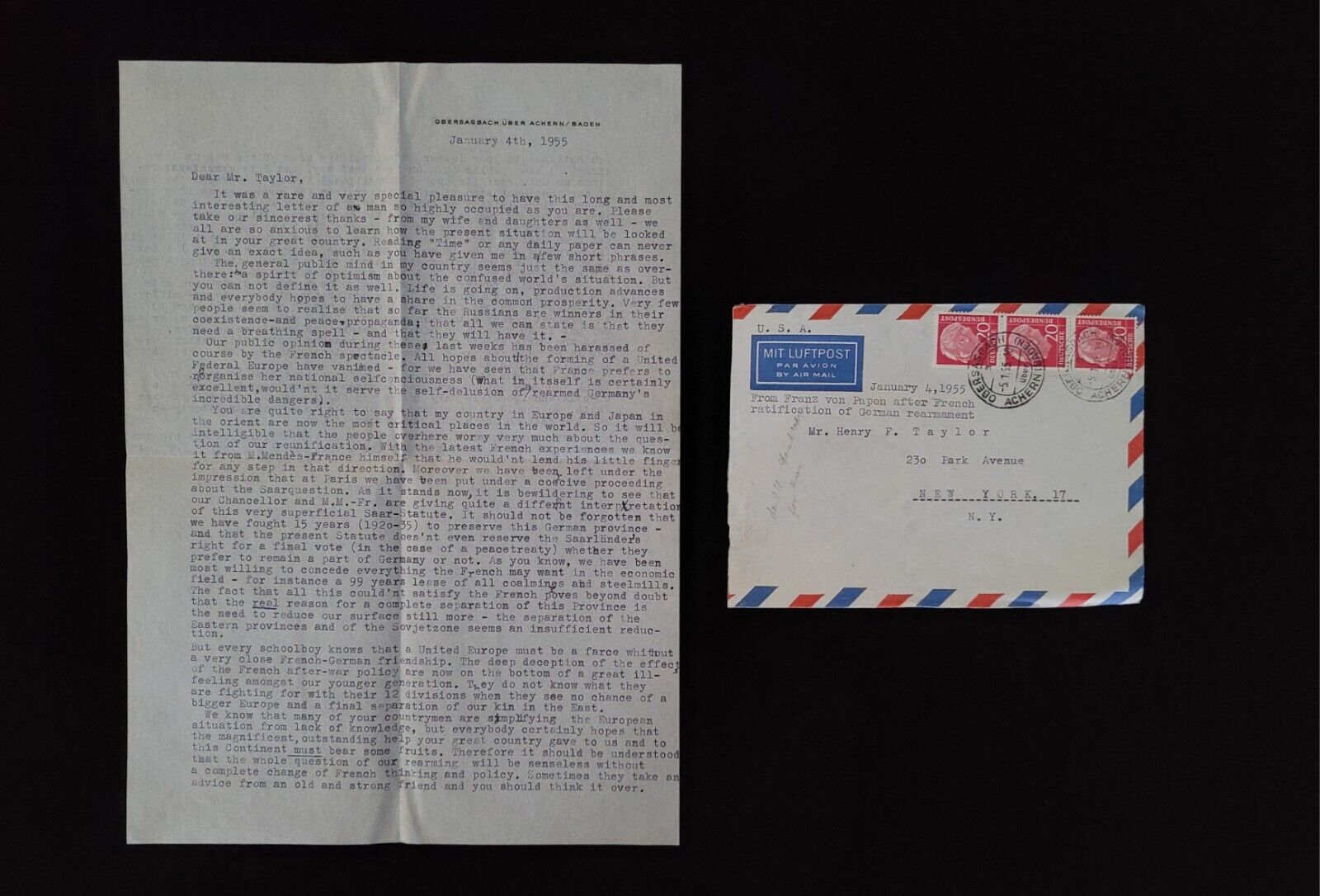
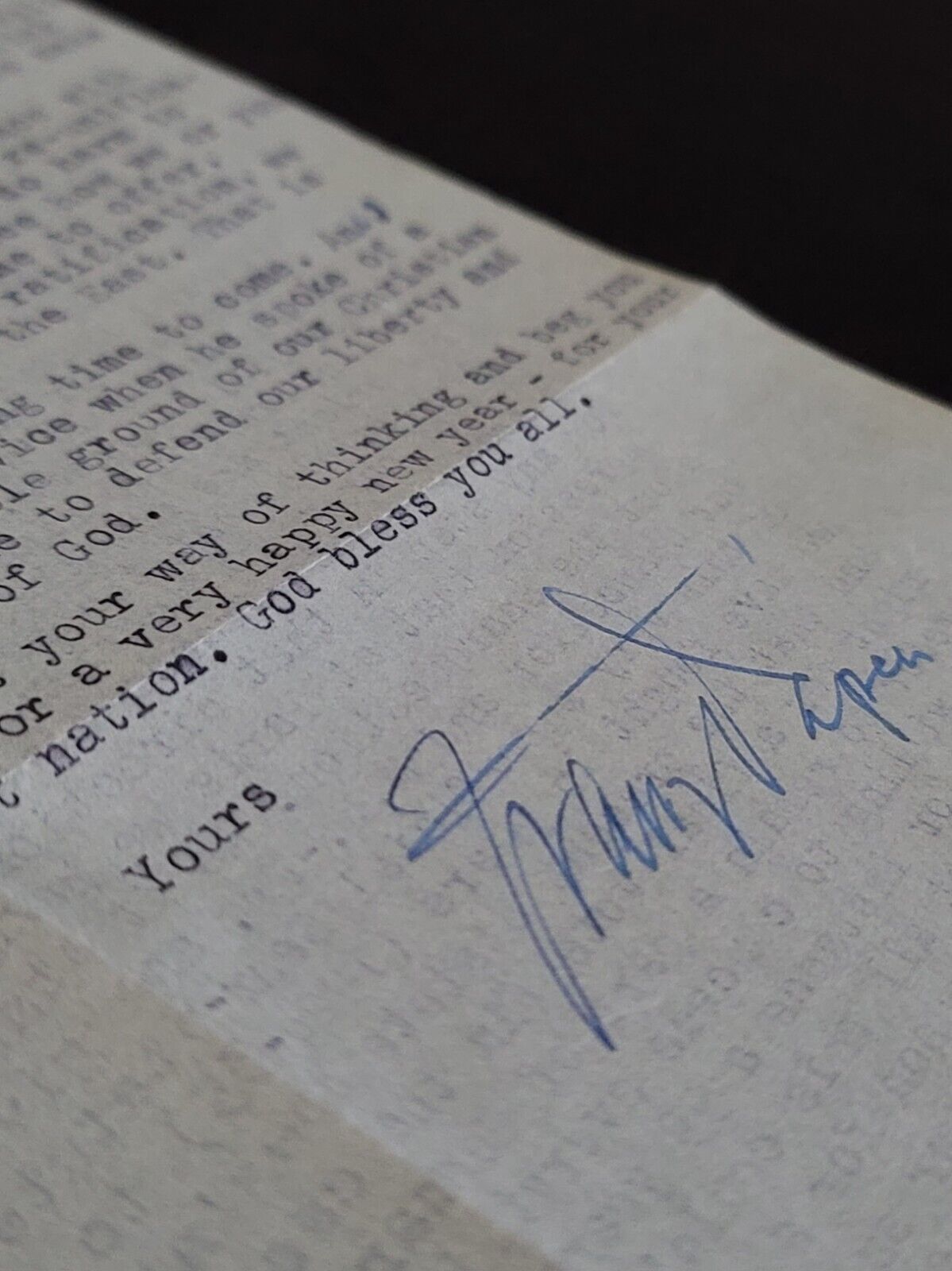
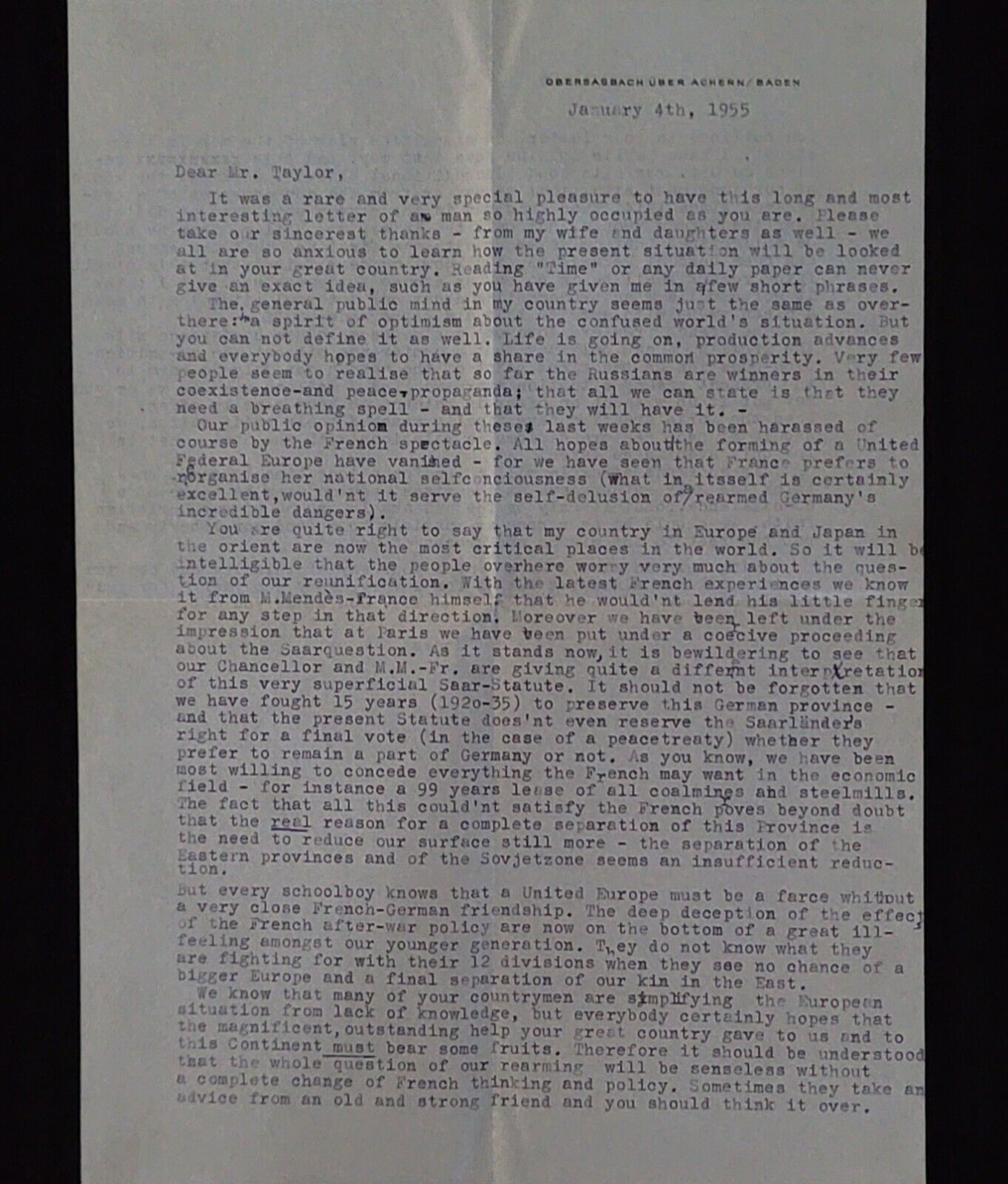
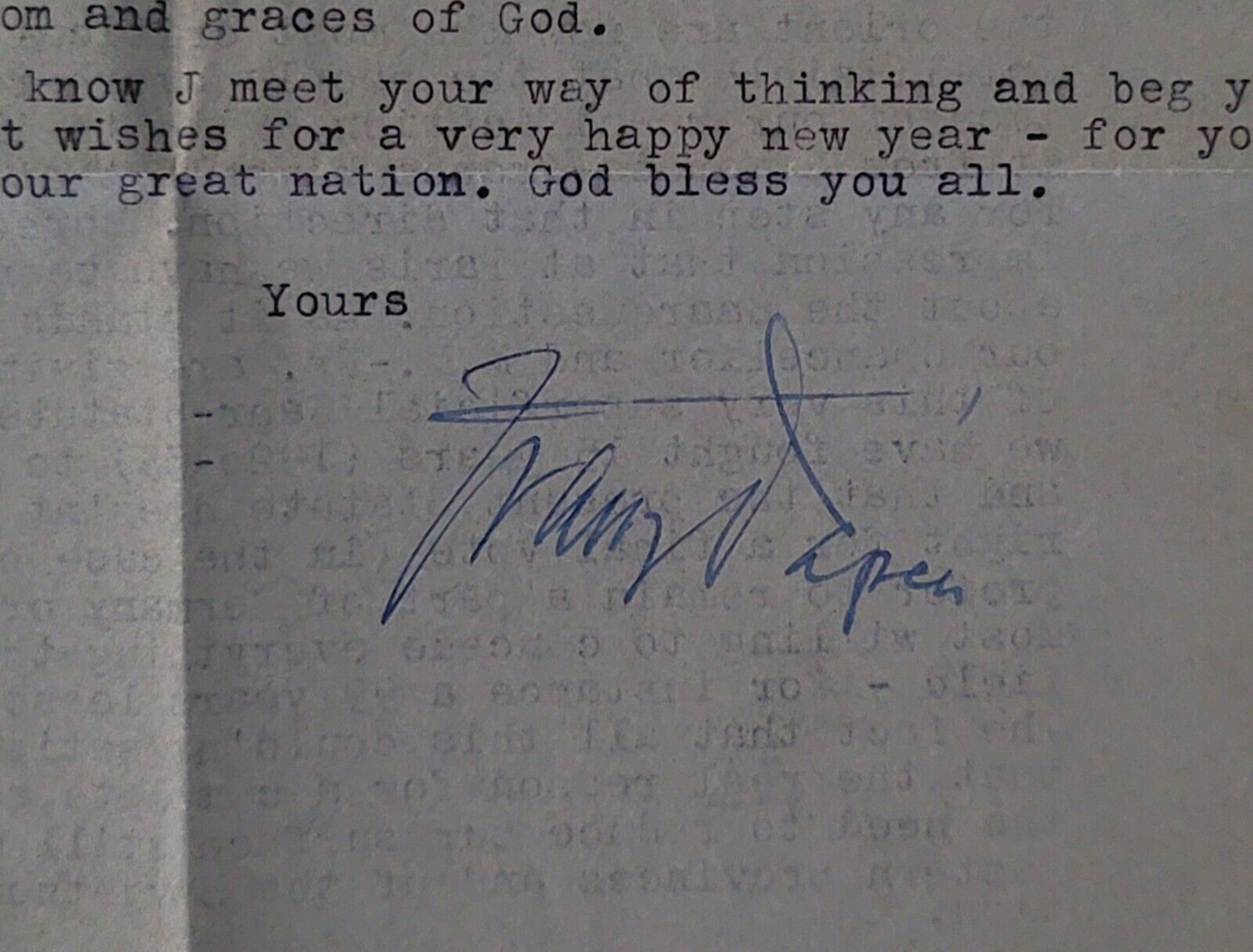
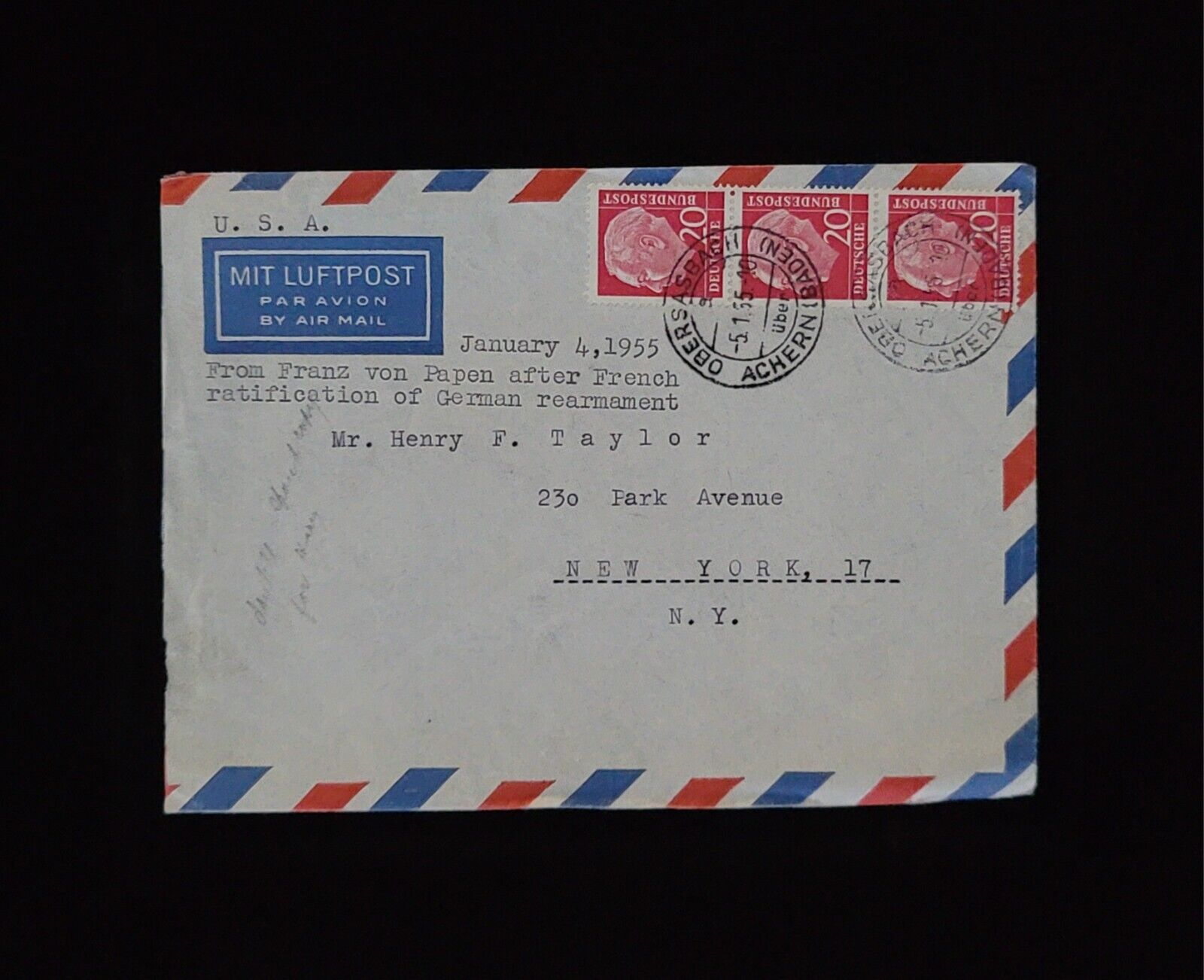

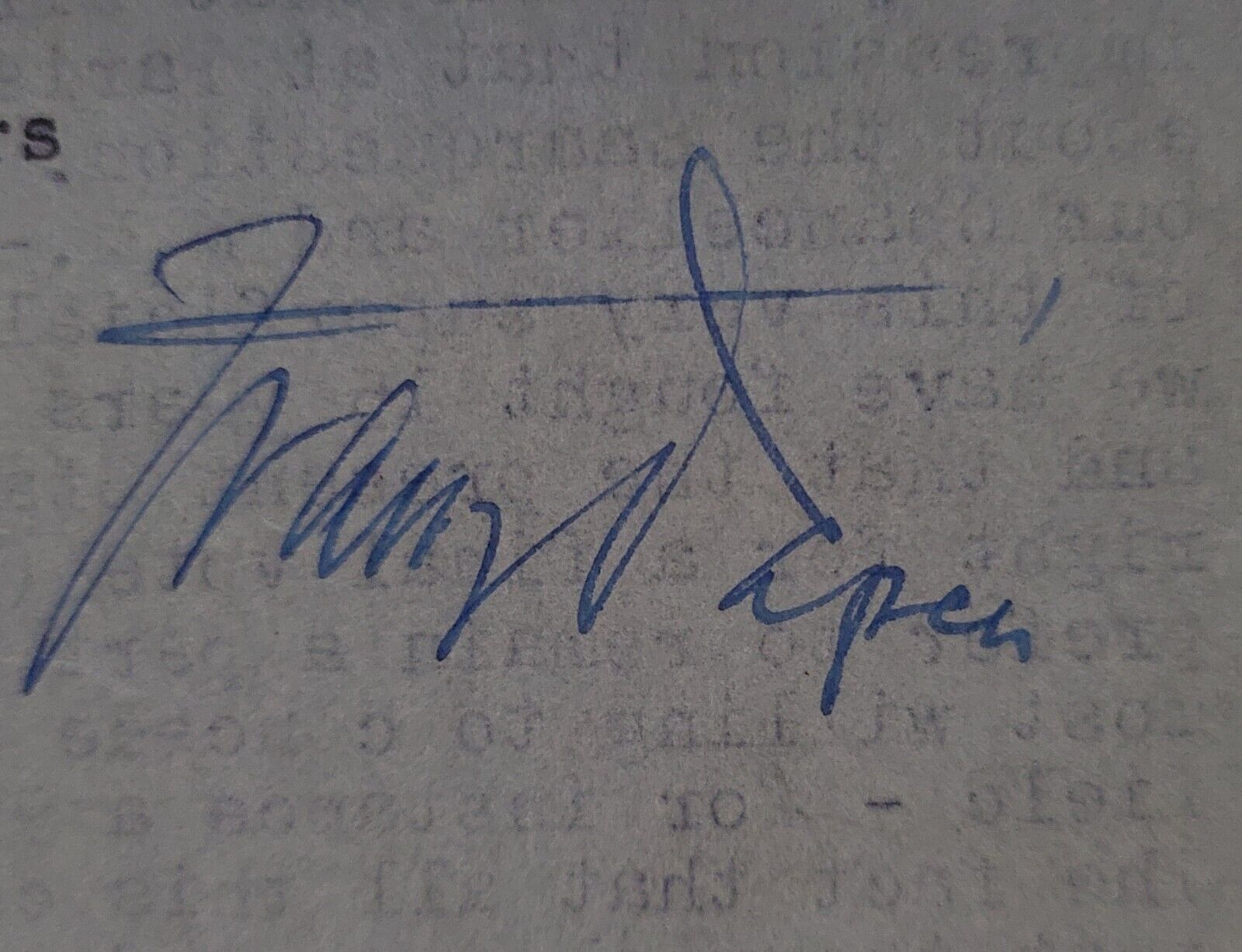
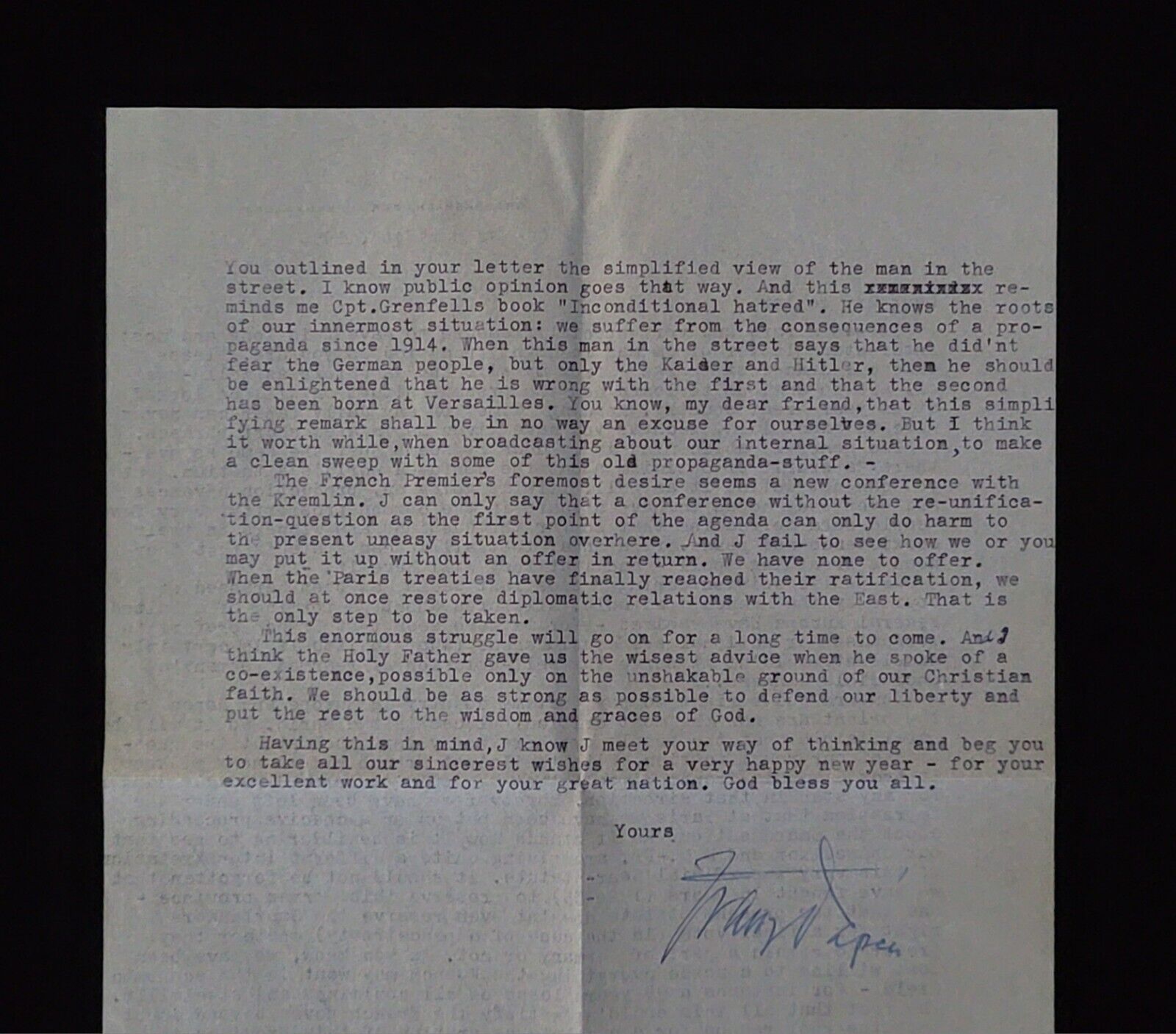
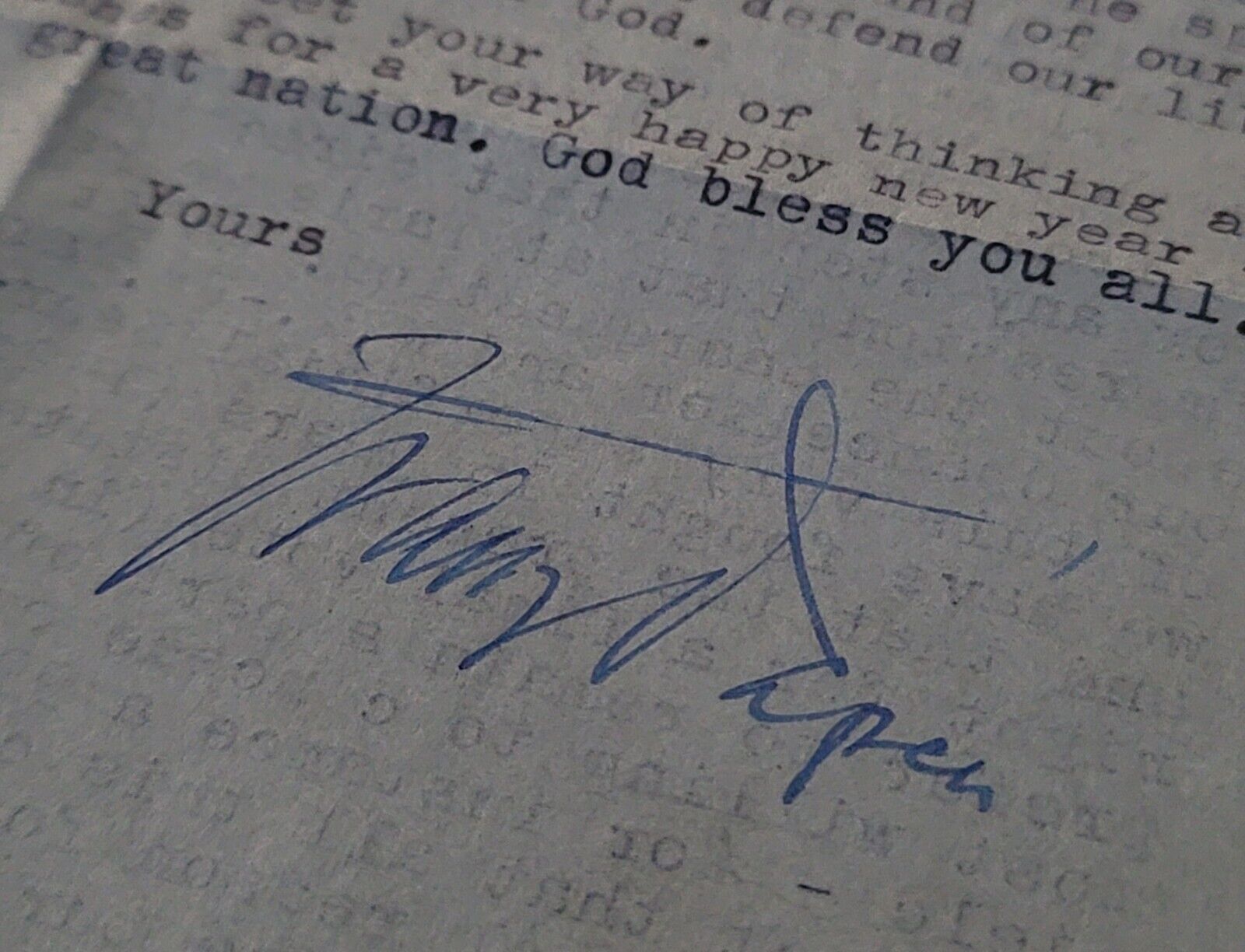
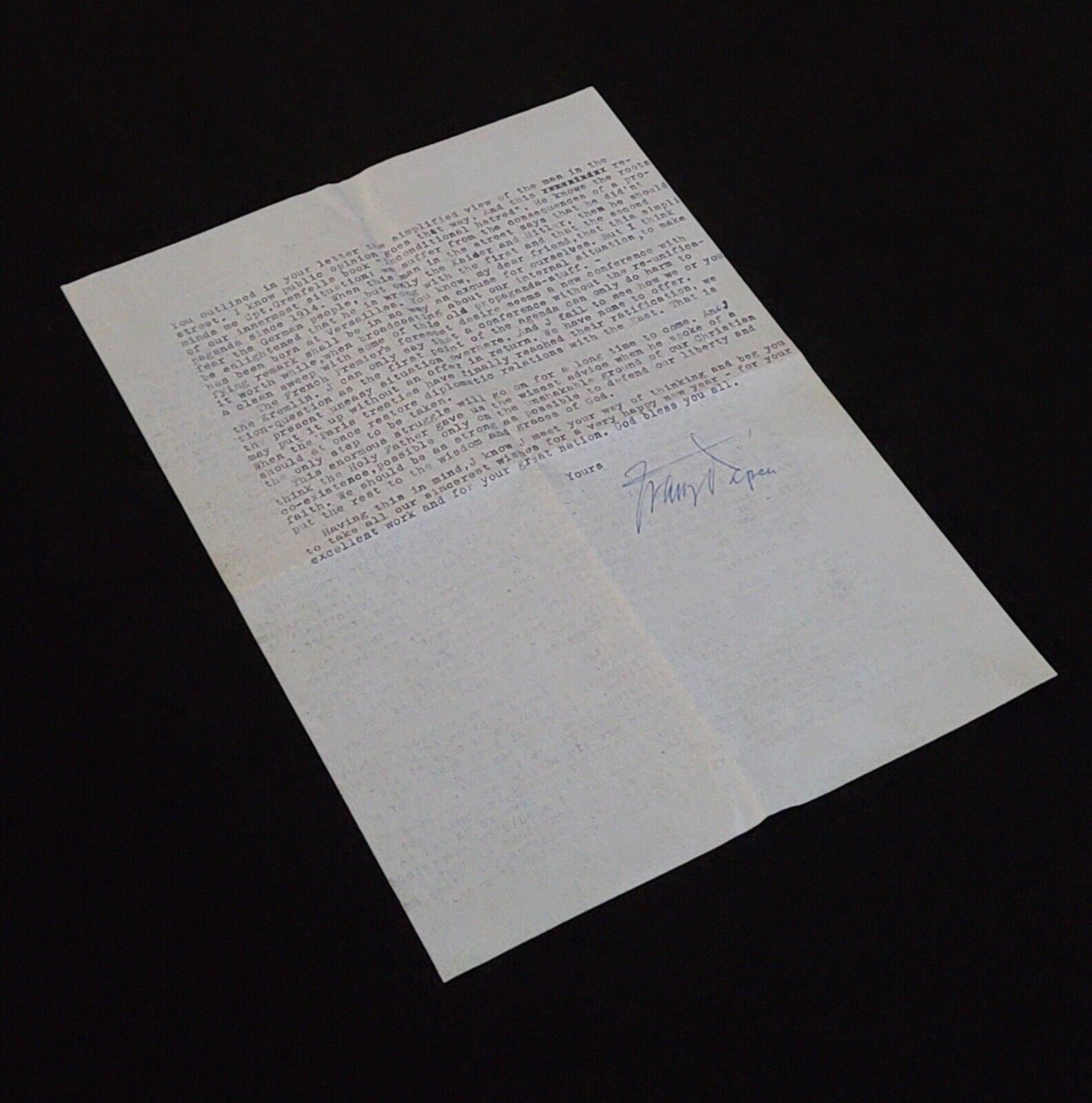
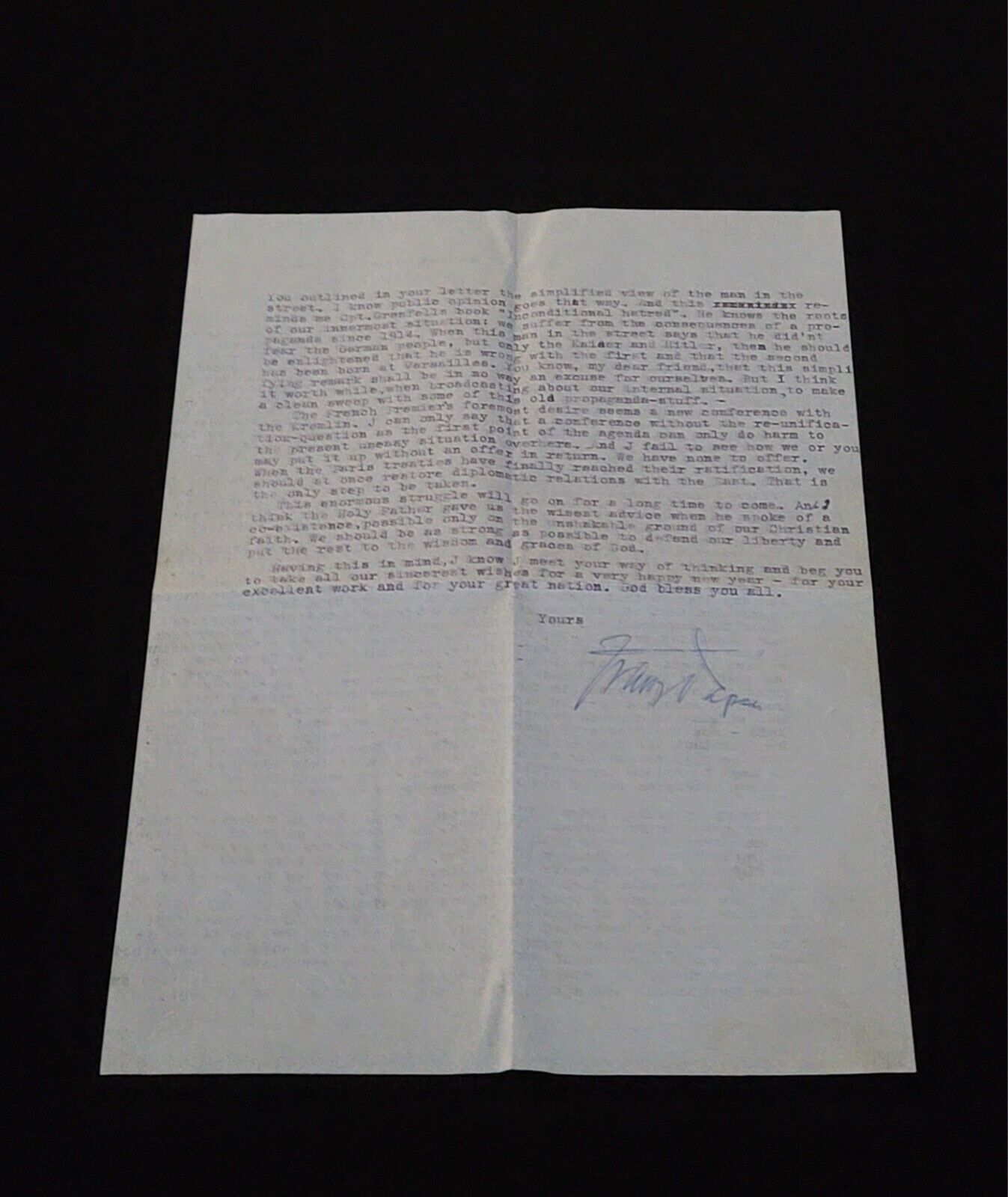
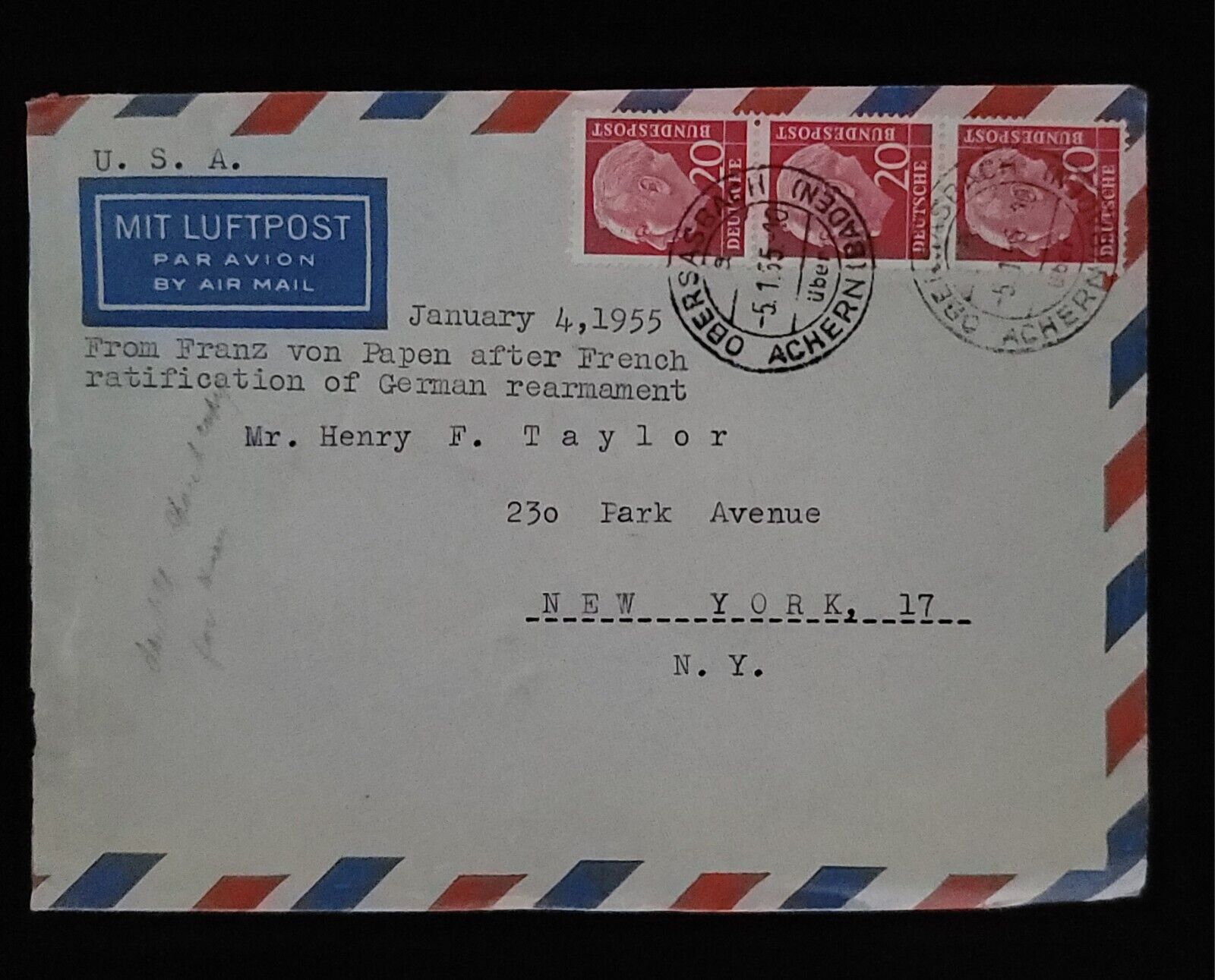
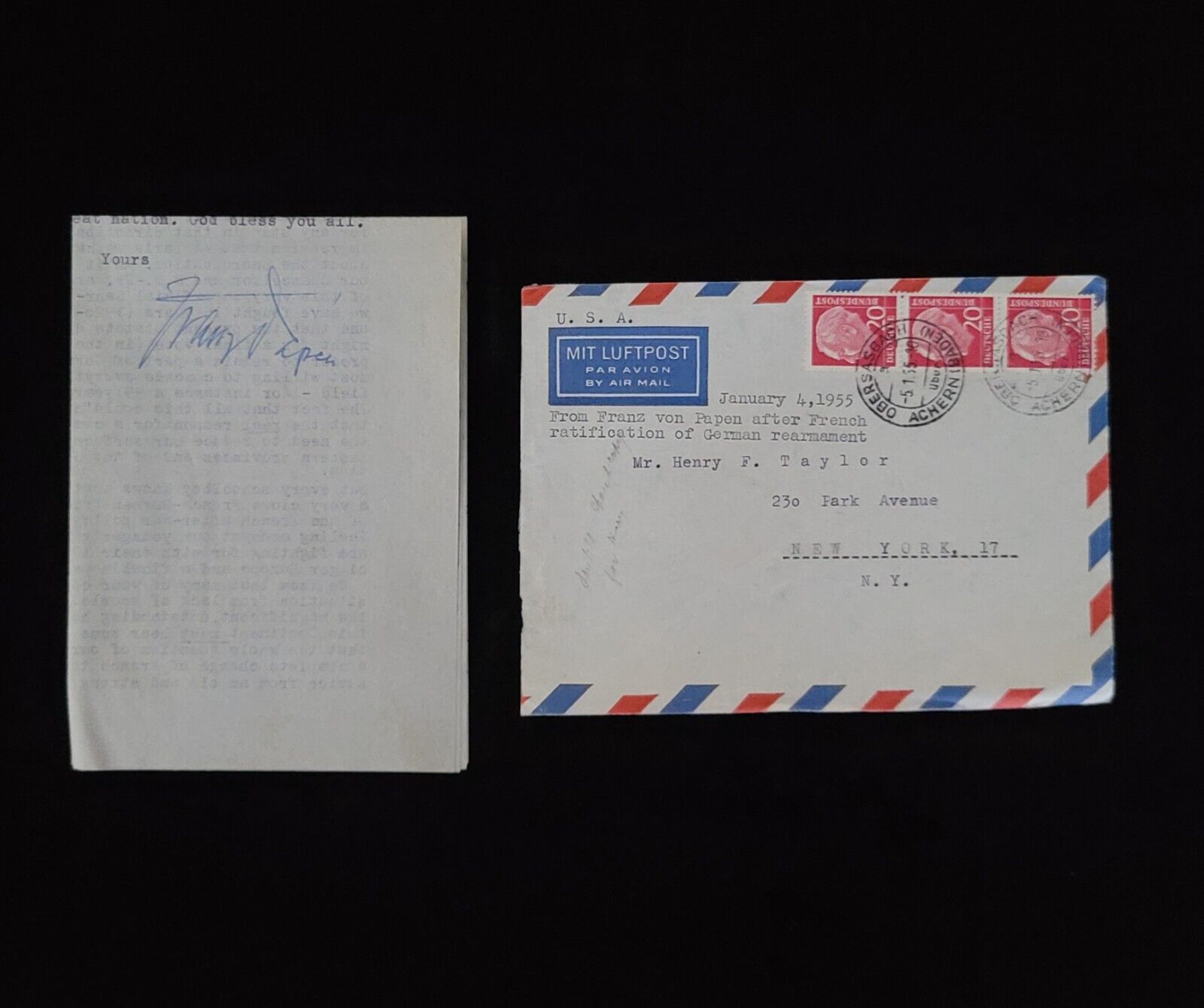
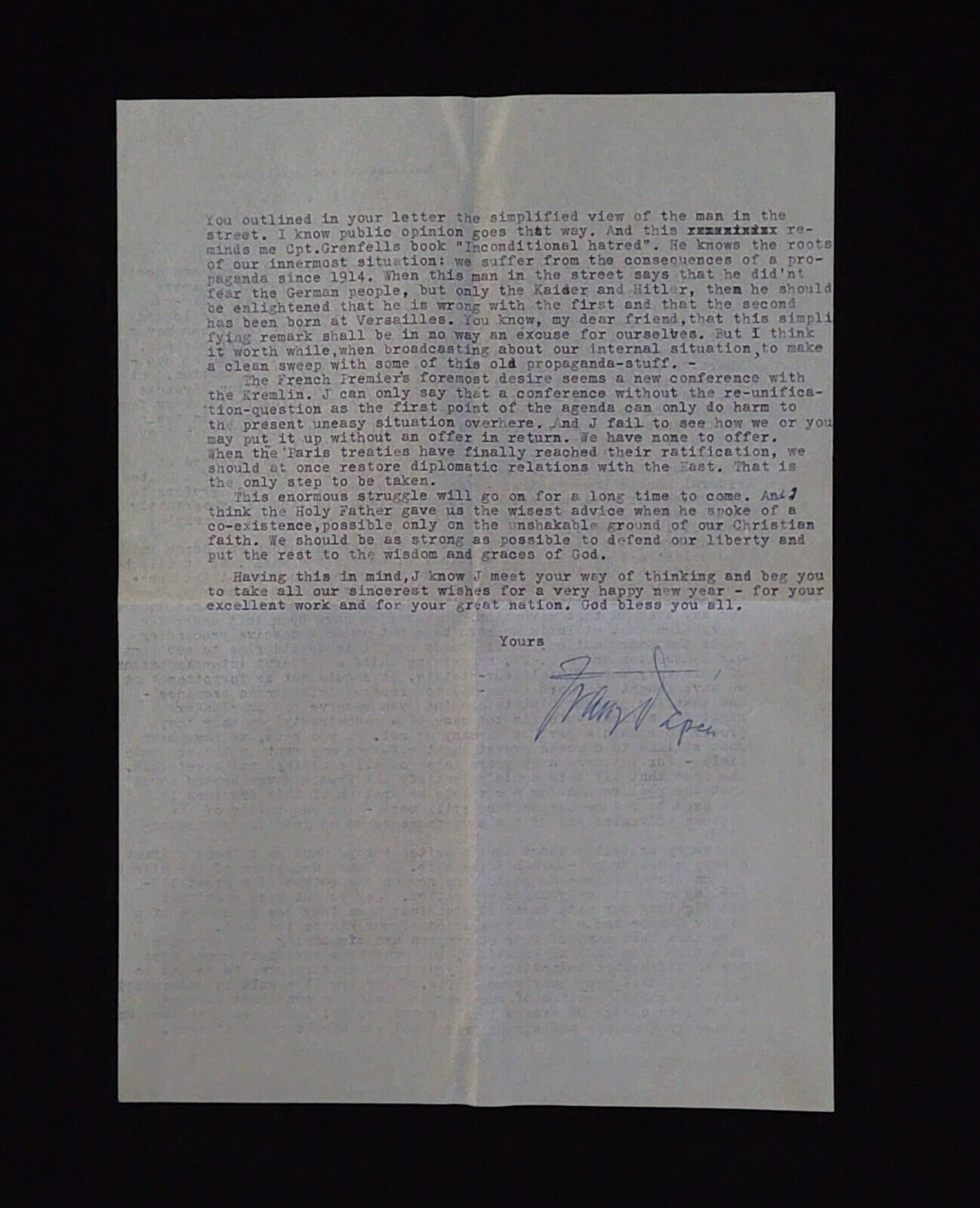
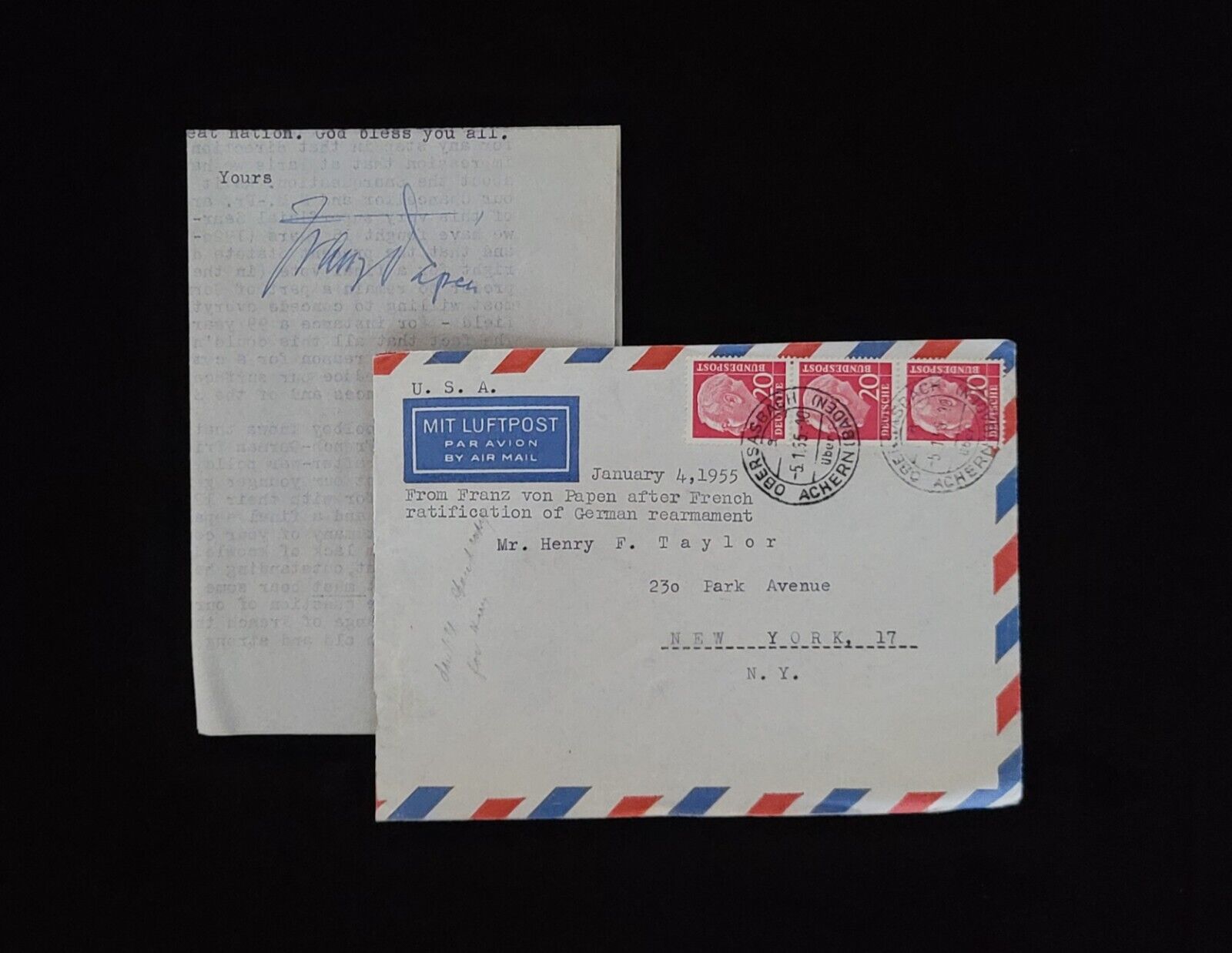
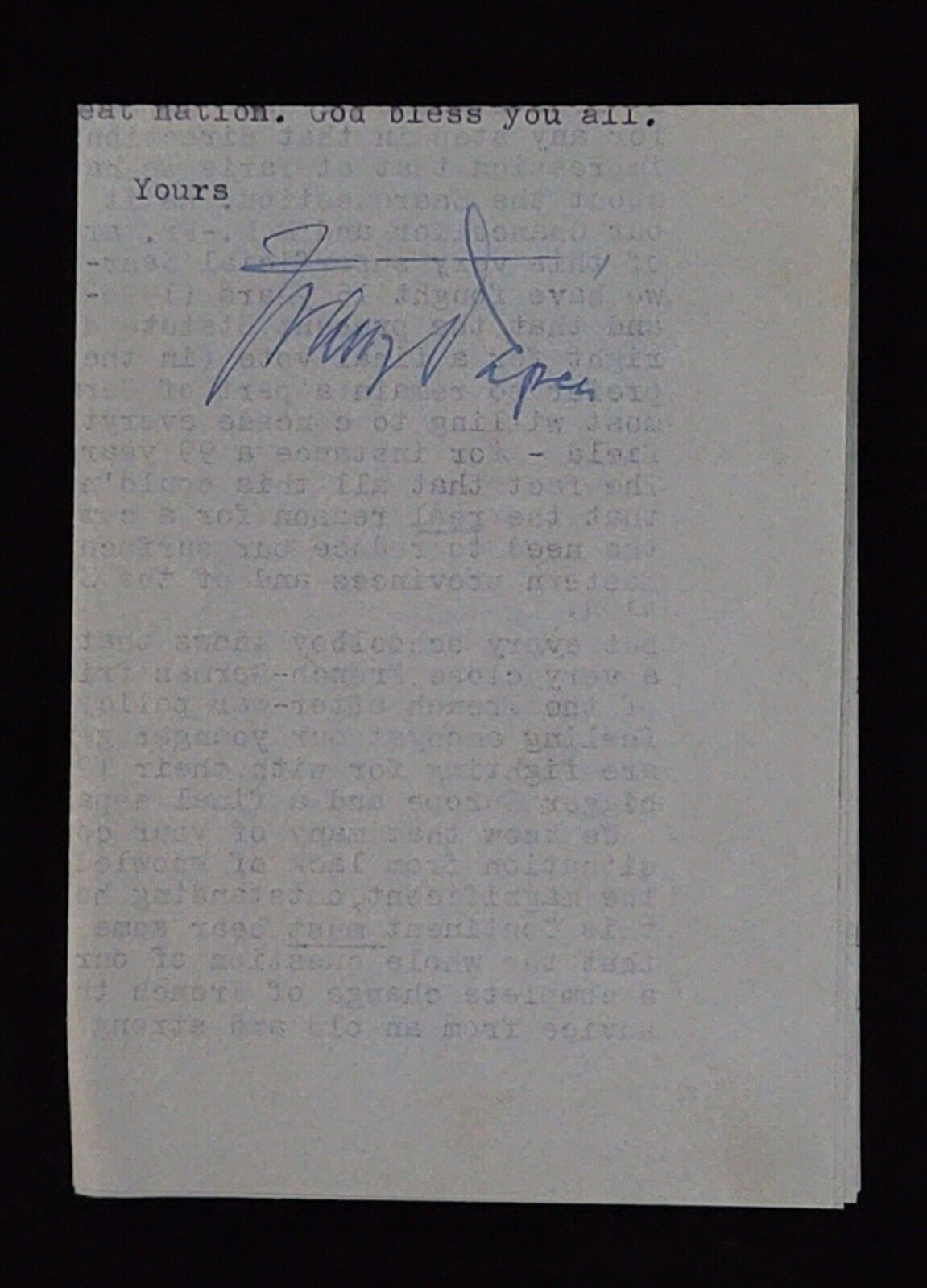
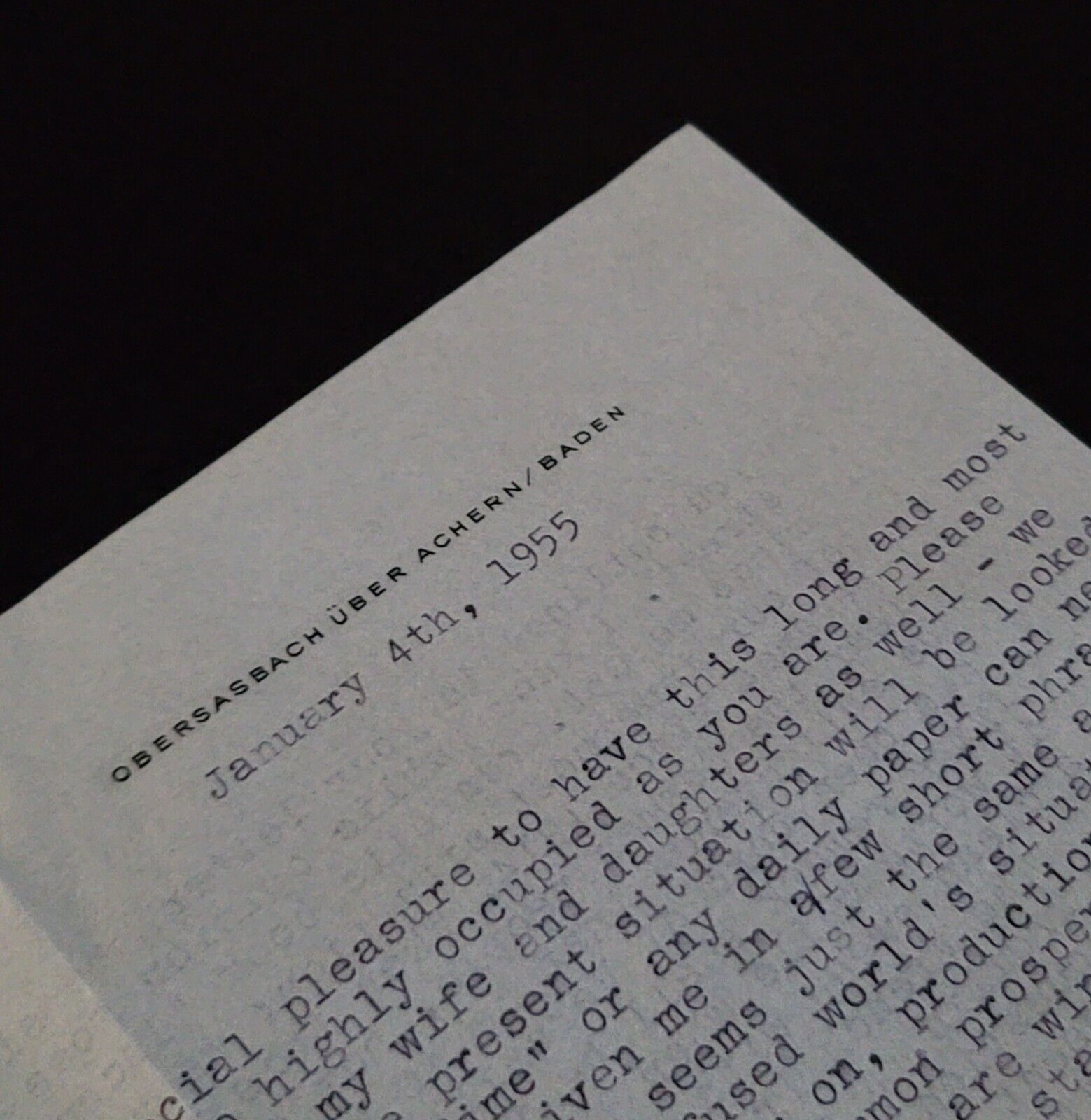
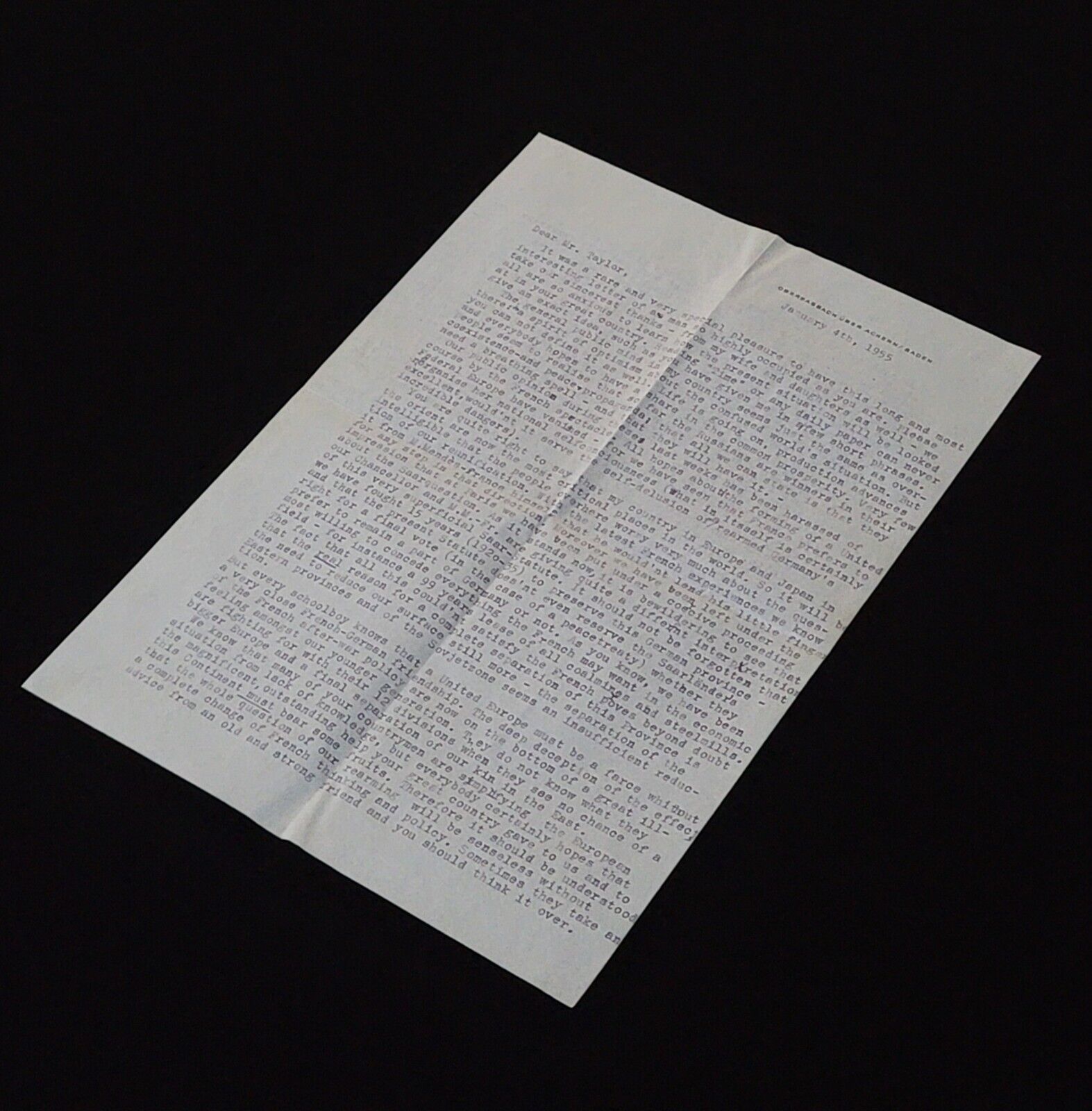
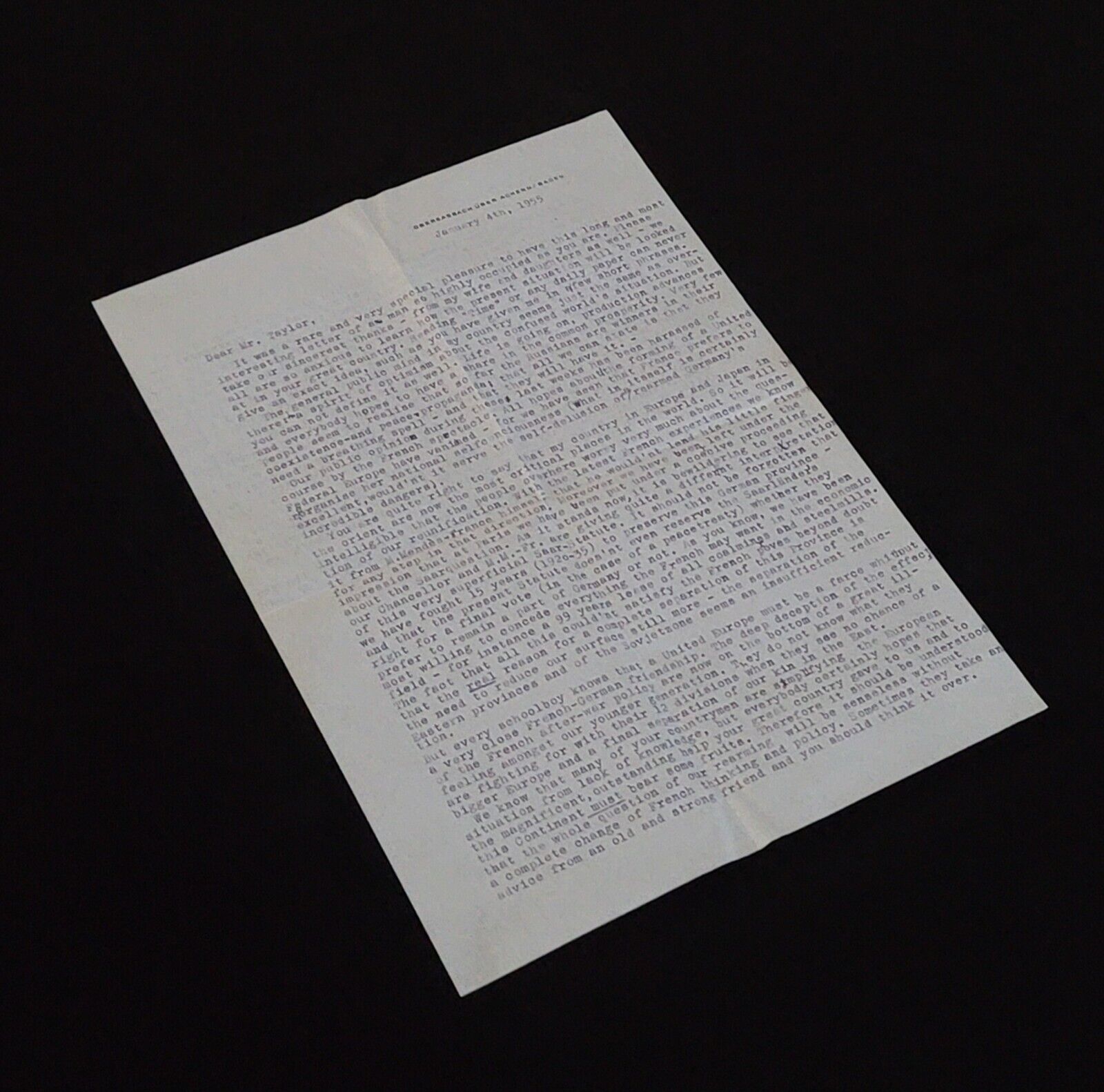
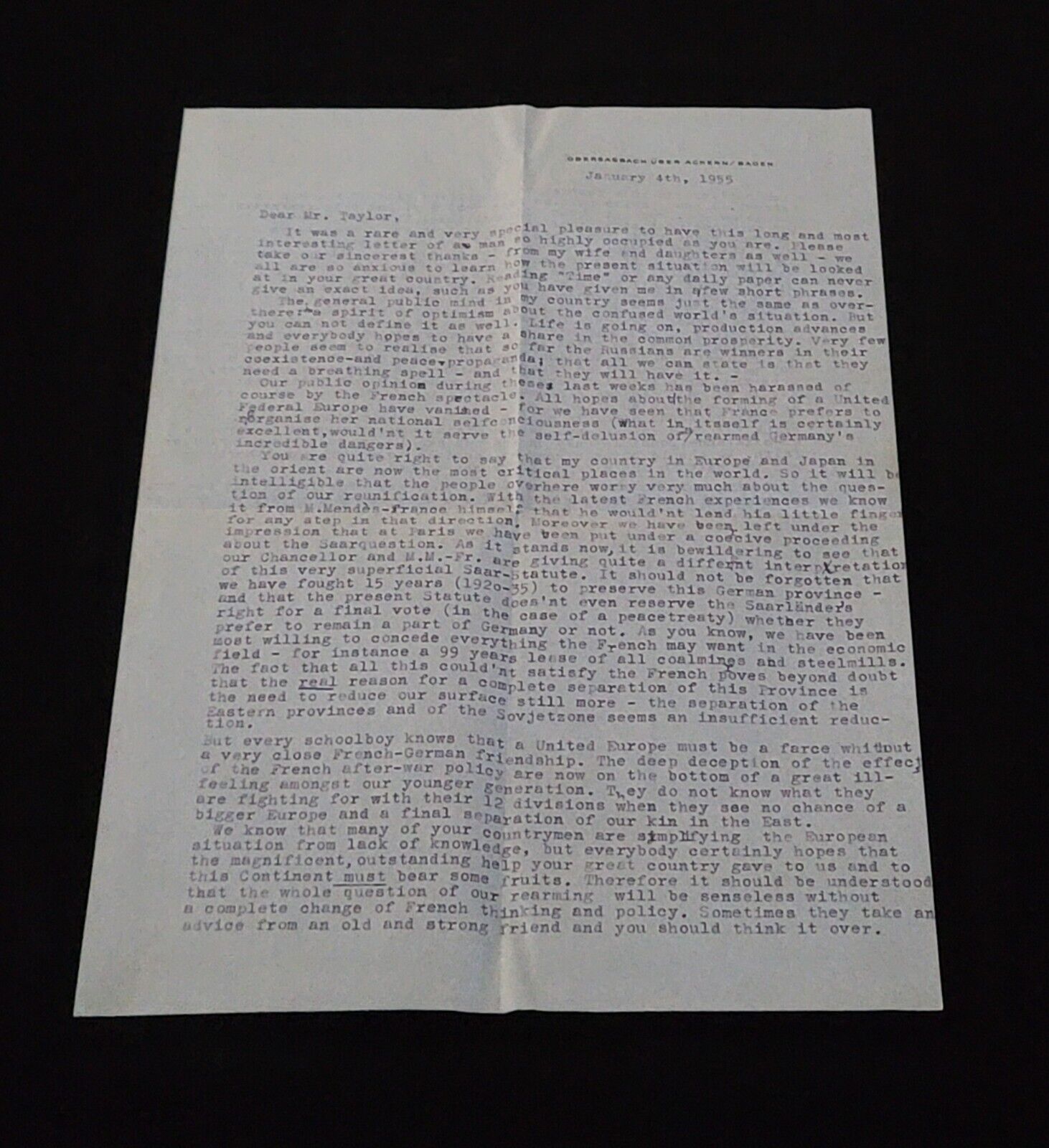
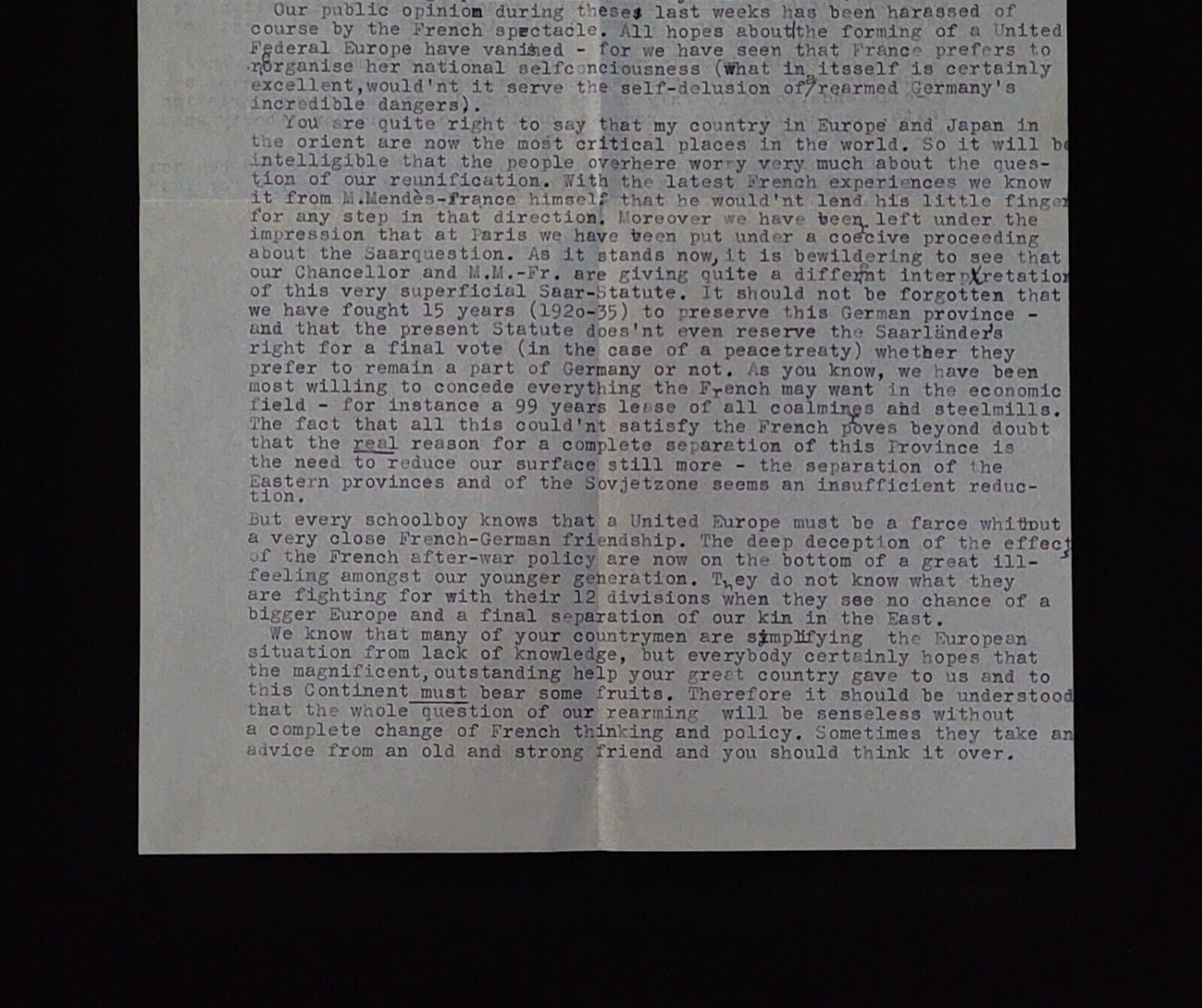
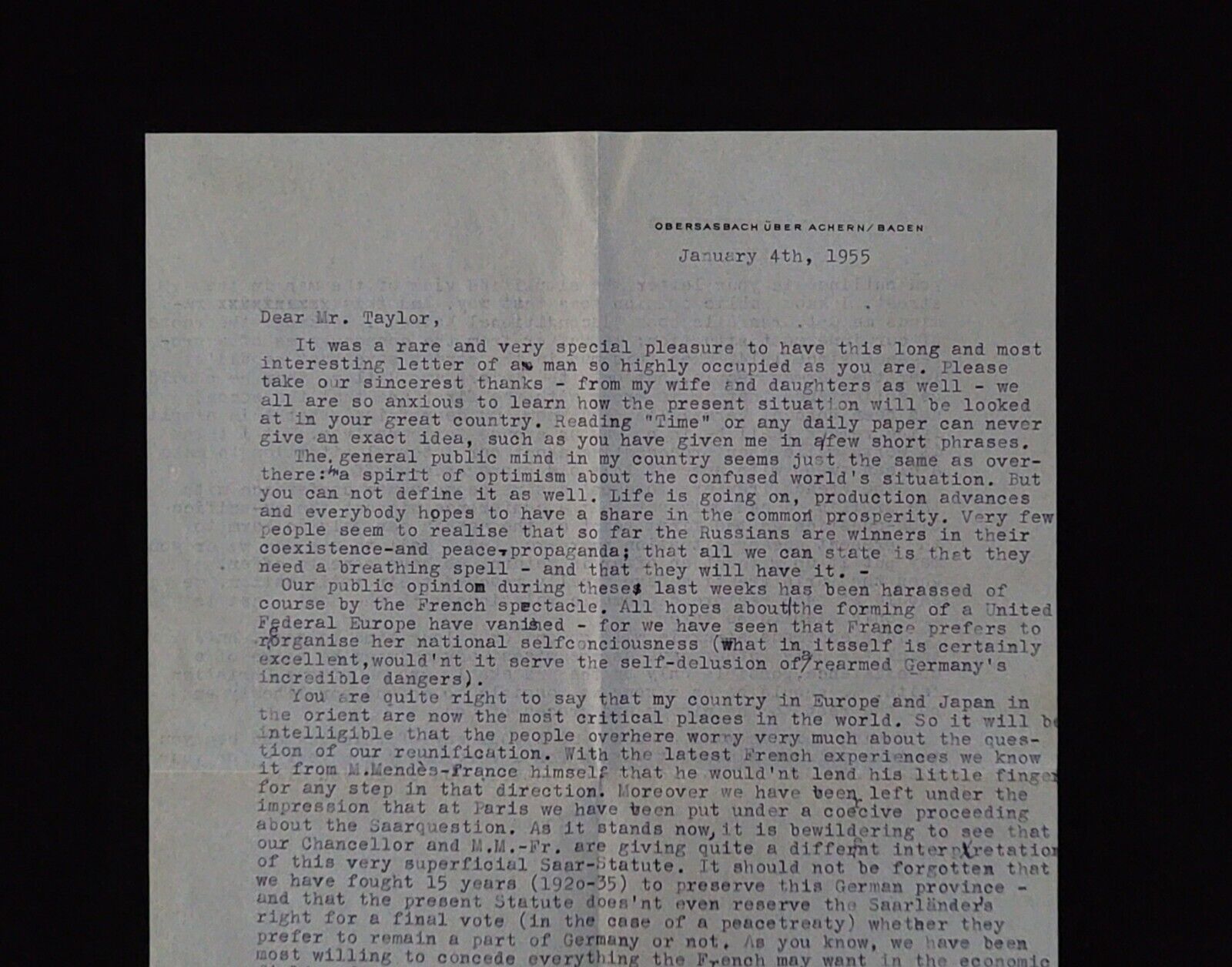
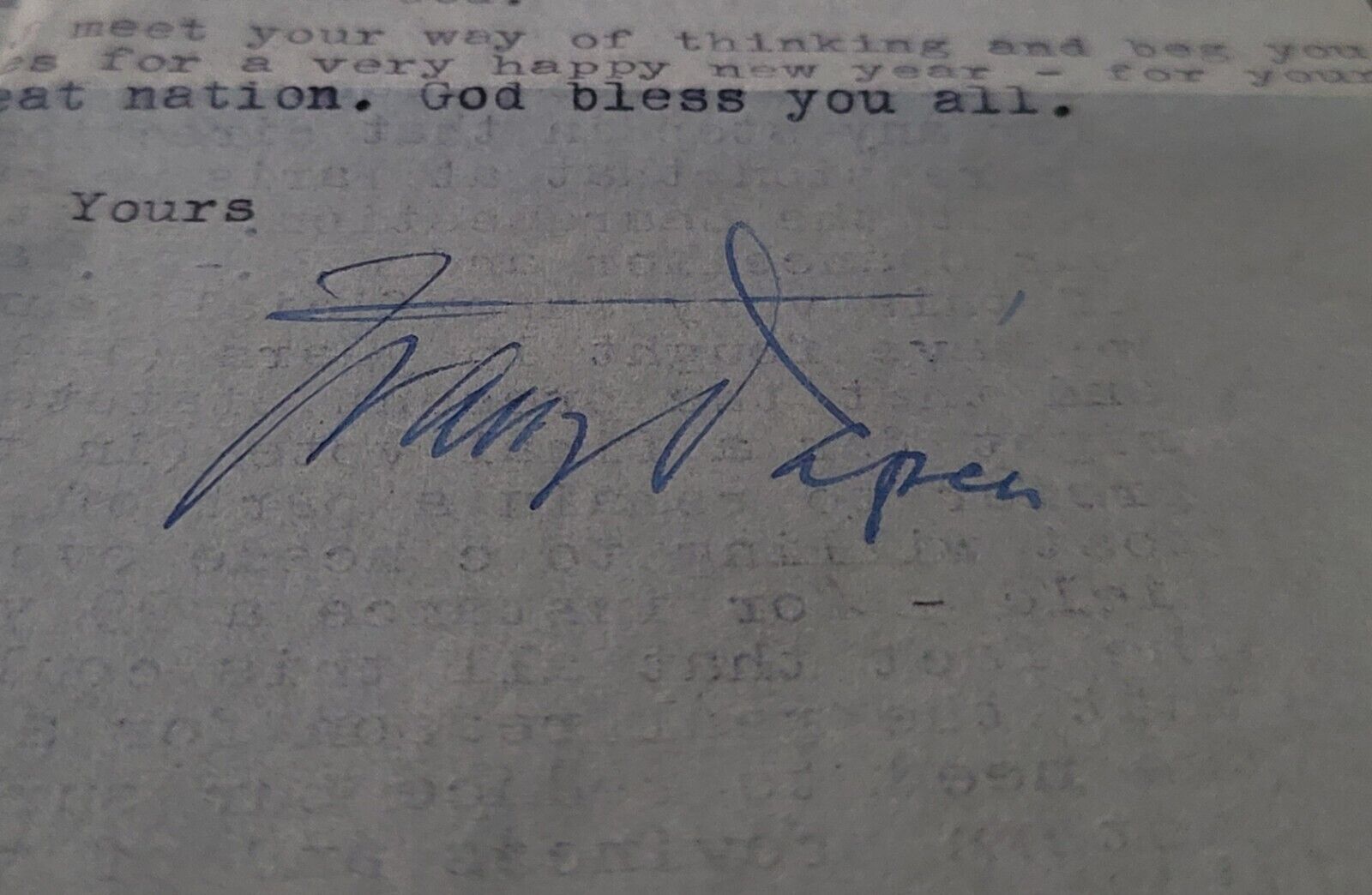
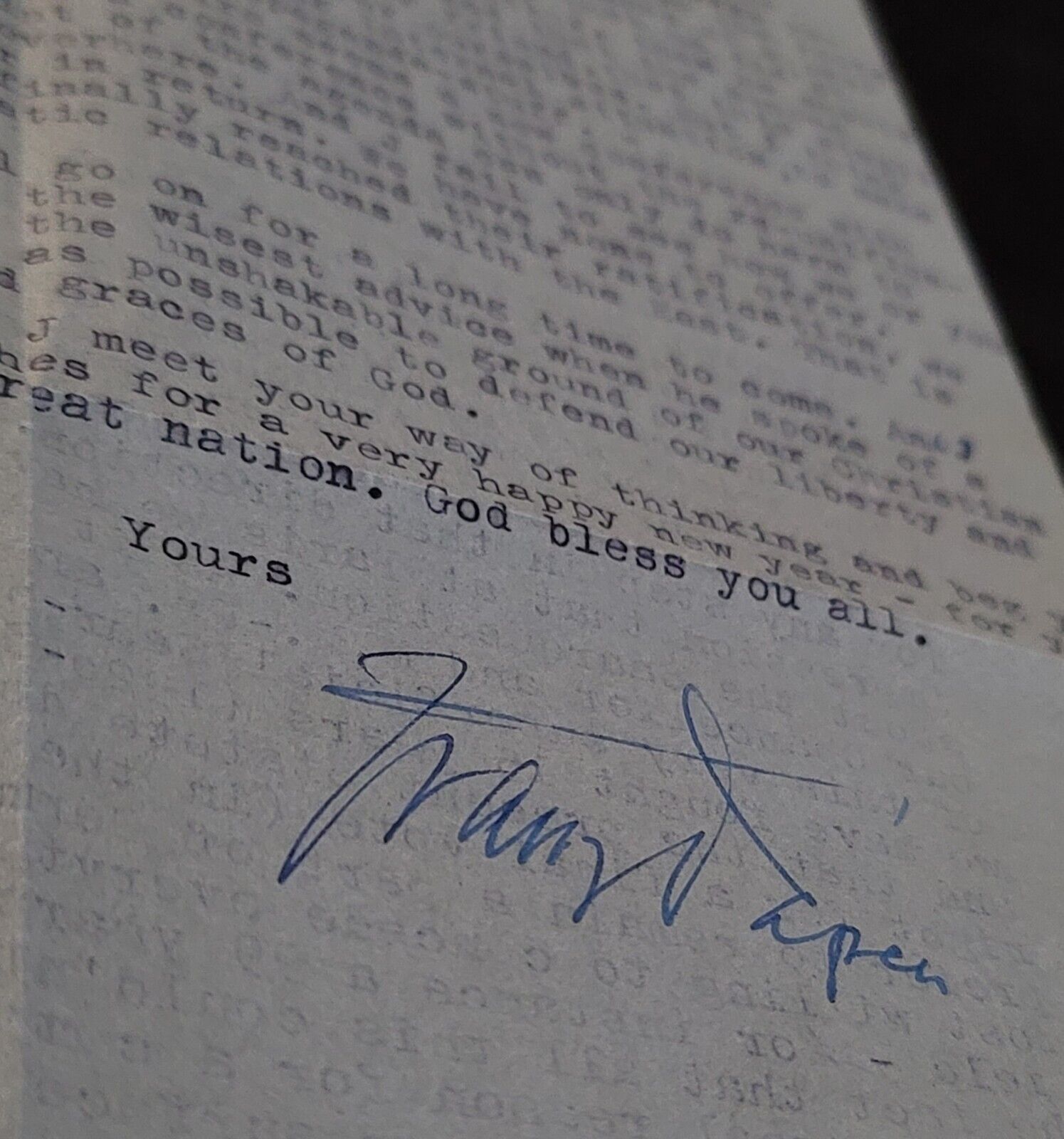
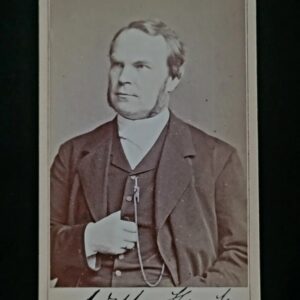
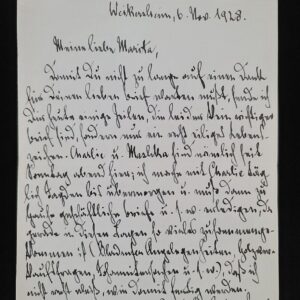
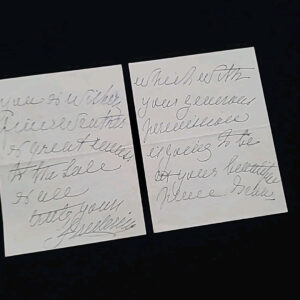
Reviews
There are no reviews yet.